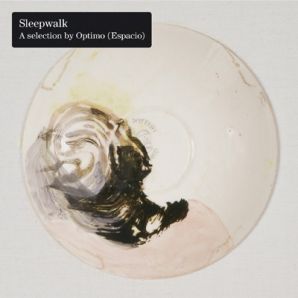
Our increasingly irregular feature looking at crucial new dance music returns this week with reviews of a two-disc DFA/Supersoul Recordings comp, a new collection of Balearic disco, an edits disc by Betty Botox, a mix CD by Optimo and the debut album by Yo Majesty.
"Death From Abroad Presents Supersoul Recordings: Nobody Knows Anything"
DFA
DFA's European sister label Death From Abroad gives us a double-disc compilation of singles and b-sides, collecting pretty much everything released via vinyl and digital by Berlin's Supersoul Recordings. Supersoul is a relative newcomer in the dance music scene, putting out its first single in 2006. Founder Xaver Naudascher, who also records for the label, was previously best known for collaborations with Einstürzende Neubauten, remixes for Pylon and UNKLE, and production work on the Run Lola Run soundtrack. I will try not to hold that last credit against him. The label's unifying aesthetic is a focus on lateral-minded, genre-defying approaches to classic subgenres of dance music. A bit of fun can be had spotting the influence from track to track: "Oh, there's a Detroit electro piece," "This one sounds like Italo Disco," etc. However, these genre exercises are far from reverential or narrow in scope. The opener "Lost," credited to Naudascher, mixes messy, hand-played granular synth sounds into the rigid framework of Detroit 909/303 electro. The epic four-part "Moon Unit" by Mogg & Naudascher is krautrock-influenced Italo Disco, combining sparkling arpeggiations with spacious, longform kosmische meanderings. It's awesome stuff, easily matching the bar previously set by Delia & Gavin's The Days of Mars. Walter Jones aims for the ultracompressed disco-house aesthetic made famous by contemporary French producers, but ends up in territory that is no less sleek, crystalline and ultramodern than Naudascher's contributions. Other standouts include Plastique de Reve's two sides, both which find new and interesting ways to breath life into the corpse of Hi-NRG house music, whether with the sassy singalong refrain of the Radical Cheerleaders on "Resist," or the dramatic use of resonance, cutoff, stereo panning and EQ in "Lost in the City." There are a few clunkers across these two discs, but surprisingly few, as Naudascher clearly has a strong editorial voice, and almost everything he has released fits into his vision, bringing dance music's past kicking and screaming into an everpresent now.
sample:

"Cosmic Balearic Beats Vol. 1"
Eskimo
Balearic House is less a genre than a particular approach: a buoyant, space-y, lighter-than-air take on sophisticated house and Italo Disco. There don't seem to be any particular rules for the genre, except perhaps for a slightly laid back tempo, 90-110 rather than the usual 120-140 BPM range. In general, there seem to be some affectations of funk, soul and even dub in the music, and a general avoidance of the kind of hard-synced roboticism of electro and trance styles. Instead, we get handclaps, finger snaps, echo, organic hi-hats and bass parts that sound like they might have been played live rather than sequenced on software. Belgium's Eskimo label presents this continuous mix of some of the newest and best examples of the genre by a bunch of faceless European artists you've never heard of, with a few leftfield choices thrown into the mix for good measure. I am often annoyed by commercially-released mix CDs, as they frequently fail as compilations, with tracks only allowed to play for their most action-packed 2-3 minutes, with so much crossfade that the songs are frequently useless for listening in isolation or using for one's own mixing purposes. This compilation is a happy exception, however, with all tracks playing for nearly their full running time, and the transitions seamless but never showy. Thanks goes to mixer/producer Skinny Joey. The breadth and variety of music collected here under the banner of "Balearic Beat" is impressive, from the chillout dub style of Coyote's "Grow Your Hair" to the melodramatic, devastating white soul of "Don't Turn Away From Love" by Lovelock. Though the mix certainly has crescendos and valleys, things never get amped up into tent-burning territory, even on ostensibly "noisy" tracks such as Homerun's "The Killer Storm." Probaby the most leftfield choice here is a Cosmo remix of a track by prickly British experimental post-punk-dance agitators Spektrum, but I must say it fits with the theme remarkably well. Lullabies in the Dark's "Estrella" is air-pushing speaker funk, crashing unceremoniously into Ichisan's spaceborne "Radar Pulse Is Sent," which may be about as corny and emotive as the disc gets. Depending on one's taste level,
Cosmic Balearic Beats Vol. 1 might be rejected completely; it certainly doesn't have the crossover appeal of DFA or Ed Banger's output. Nope, I'm afraid this is pure European disco-cheese, and all the better for it.
sample:

Betty Botox, "Mmm, Betty!"
Endless Flight
Betty Botox is another face of producer/mixmaster JD Twitch/Optimo, largely reserved for his edits of material not originally conceived as dance music. I've long been confused as to what exactly the difference between a "remix" and an "edit" is, so if you're in the same boat don't feel bad. As near as I can figure, an "edit" is produced using only the stereo master, and is generally an attempt to whip the track into shape for the dancefloor with a minimum of alteration. A remix generally uses the individual stems and/or re-recordings of parts, and usually implies a much more radical reworking of the original material. Of course, as with all such terms, there is quite a bit of gray area, and in this era of digital audio and "blog house" there are plenty of so-called remixes that have used only the master, and plenty of edits in which there must have been access to the original track parts. Betty Botox leans a bit more towards the classic definition of an edit on
Mmm, Betty!, however, presenting a mismatched suite of nine tracks by such unusual suspects as The Residents, Hawkwind and Zed. Some of the choices here are a bit more obvious, such as The Jellies' "Jive Baby On A Saturday Night," which was already a pretty solid disco number. Betty's treatment extends the song and emphasizes the beats and breaks, adding dubby touches here and there. Mostly this will appeal to DJs and amateur mixologists of all stripes, who slave away with beat markers in Ableton Live trying to make atypical songs sync up with a solid 4/4 beat. Here, all the work has been done already, which may or may not be a good thing, depending on the amount of personal pride one takes in doing the work for oneself. As a listening experience, this disc still provides some unexpected pleasures, such as the awesome edit of The Residents' "Diskomo," which was always meant to be a "disco" version of "Eskimo," Betty's remix helping it achieve maximum dancefloor potential. It's shocking just how well the song works as classic mutant disco. Ditto Hawkwind, who are given the Beyond the Wizard's Sleeve-style once-over with "Valium Ten," the repetitive motorik chug and synth lines emphasized. Naum Gabo steps in at the end for an awesome reworking of Zed's "Fremen," a 1970s French prog analog masterpiece.
Mmm, Betty! contains more than enough outré dance energy to fuel an exclusive loft party for discriminating ravers, and it also inspires creativity in DJ sets by going well outside the genres usually considered for the dancefloor.
sample:

Optimo, "Sleepwalk"
Domino
Glasgow's JD Twitch/Optimo (Espacio) has worked to position himself as the music snob's mixologist of choice. Spanning genres and time periods in an audacious manner, Optimo freely moves between populist, speciality and experimental avant-garde music with a magpie sensibility that finds dance mix potential in practically anything. In the case of mixes like the double-disc
How To Kill The DJ Part Two (which we reviewed
here upon its initial release), Optimo occasionally let the solid backbeat lapse in favor of adventurous explorations of strange juxtapositions and unorthodox mashups. Here on
Sleepwalk, his debut for the relatively high profile Domino label, he produces a mix that is high in the music nerd quotient (Nurse With Wound, Coil and Cluster all appear), but very low on the dancefloor quotient. Instead, this is more of a sequenced, slightly crossfaded mix CD made by your friend with really good taste in music and an awesome record collection. As such, it cannot depend upon the usual mitigating factors of dance mixes; instead, it relies purely on whether or not you like Optimo's choices of abstract chillout music. It's hard to complain about the inclusion such perennial cult favorites as Eden Ahbez (cryptic poetry over exotica backing) and Mulatu Astatke (Ethiopian jazz with awesome psych guitar solos), but for adventurous music fans and MP3 blog junkies, most of the tracks included here will be old news. What music nerd hasn't heard of Arthur Russell or Lee Hazlewood or Karen Dalton by now? I suspect that a major attraction for Coil completists will be an "exclusive mix by Peter Christopherson" of "A Cold Cell" (entitled "A Cold Cell in Bangkok"), but it's really nothing special, closer in sound to the
Ape of Naples version of the song, and further away from the superior
Backwards-era demo included on the
Wire Tapper comp years ago. It's hard for me to completely pan this, as so much of the music here is great, but the whole enterprise of releasing a mix disc like this seems creatively bankrupt by its very nature. Optimo is obviously talented (see the Betty Botox review above), but his input here is minimal-to-nonexistent, akin to putting your iPod on shuffle and recording the results. I'm calling bullshit on this whole niche market of commercially-released mix discs until further notice.
sample:

Yo Majesty, "Futuristically Speaking...Never Be Afraid
Domino
On the other end of the taste spectrum from items such as Optimo's music snob-approved mix CD is Yo Majesty's debut album
Futuristically Speaking...Never Be Afraid, which is also out on Domino. Yo Majesty is a female HipHop duo from Tampa, Florida, consisting of MC Shunda K and singer Jwl B. They are hard-hitting ghetto-ass lesbian thugs with foul mouths, and they might just save HipHop, offering a powerful riposte to the genre’s history of misogyny. Their beats are produced by the duo Hard Feelings UK, who combine 1980s electro, Miami bass and straight-up Dirty South crunk to provide a series of impossibly punchy backing tracks for the twosome to rhyme over. And rhyme they do, spitting out a series of obscene soliloquies about fucking, fighting, getting fucked up and fucking shit up. Oh, and they are also Christians. Though this is undoubtedly a HipHop album, it is also just as clearly a club album. The hard-hitting old school bass/electro style and number of refrains that are sung rather than rapped make this work just as well outside the usual HipHop club milieu. Their shows are the stuff of legend, with Jwl B often performing topless, both women provoking the audience with their unapologetically nasty, aggressive lyrical style. The refrain of "Club Action" (otherwise known as the "Fuck that shit" song) has already become famous due to its appearance on a number of underground mixtapes, as well as Girl Talk's latest album, and for good reason. It's infectious Babaataa/Dynamix-style backing track, and profane, lightning-fast rapping, are a recipe for music blog fame. However, there are more complex things afoot across the album, tracks such as "Night Riders" and "Never Be Afraid," in which Shunda K delivers political/philosophical/spiritual messages (incoherent though they may be) over HFUK backing tracks that display an intimate knowledge of the weird alien rhythm science that made Miami Bass and electro such innovative styles in their heyday.
sample:
Read More
 Our increasingly irregular feature looking at crucial new dance music returns this week with reviews of a two-disc DFA/Supersoul Recordings comp, a new collection of Balearic disco, an edits disc by Betty Botox, a mix CD by Optimo and the debut album by Yo Majesty.
Our increasingly irregular feature looking at crucial new dance music returns this week with reviews of a two-disc DFA/Supersoul Recordings comp, a new collection of Balearic disco, an edits disc by Betty Botox, a mix CD by Optimo and the debut album by Yo Majesty.




